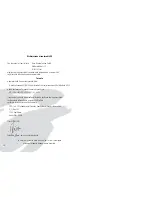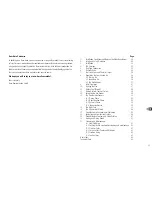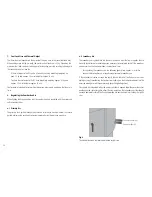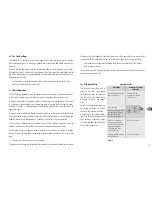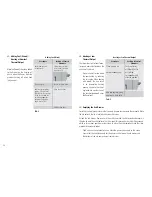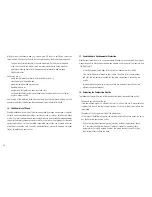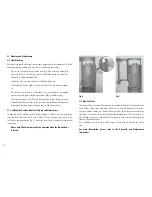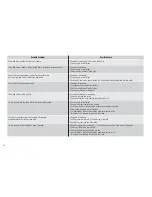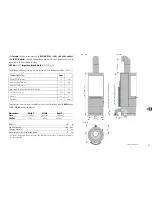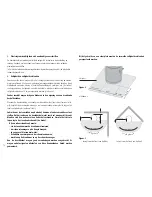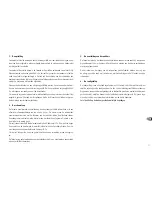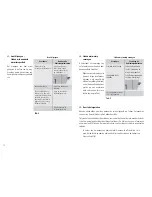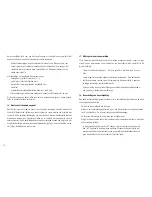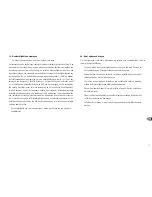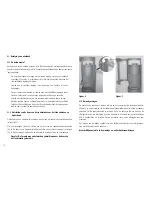
63
21.4 Ceramic Glass Panels and Windows
When the stove is properly operated, the secondary air simultaneously forms an air curtain
at the pane, which prevents the glass from becoming sooty.
If ash particles get on the ceramic glass panels, we recommend, as an alternative
to conventional glass cleaners, a tried and true environmentally-friendly cleaning
method:
Take some balled-up paper towelling or newspaper, moisten it, dip it into the
cold wood ash, rub the panel with it and then wipe the glass with a clean, dry
ball of paper.
21.5 Fire Box Lining
The heat-resisting stones in your stove‘s fi re box are made of Vermiculite. Vermiculite is
a fi re-resistant mineralogical granulate material with excellent insulating properties. The
density of the slabs is a result of the optimal balance between mechanical stability and
insulation properties.
The relatively soft surface is subject to natural wear and tear, depending on use. The heat-
resisting stones have to be replaced if parts break off and the back wall of the fi re box,
located behind the slabs, becomes visible. Tears or cracks in the heat-resisting stones do
not impair the functioning of your stove.
To reduce the damage to the heat-resisting stones, place logs carefully in the fi re
box and do not let them fall against the walls of the fi re box.
21.6 Sealing Strips
The sealing strips for the fi re box door and ash box are made of highly heat-resistant,
asbestos-free fi breglass. The sealing strips are wearing parts and thus have to be replaced
in line with the frequency of use.
We advise having your stove regularly inspected by a specialist.


